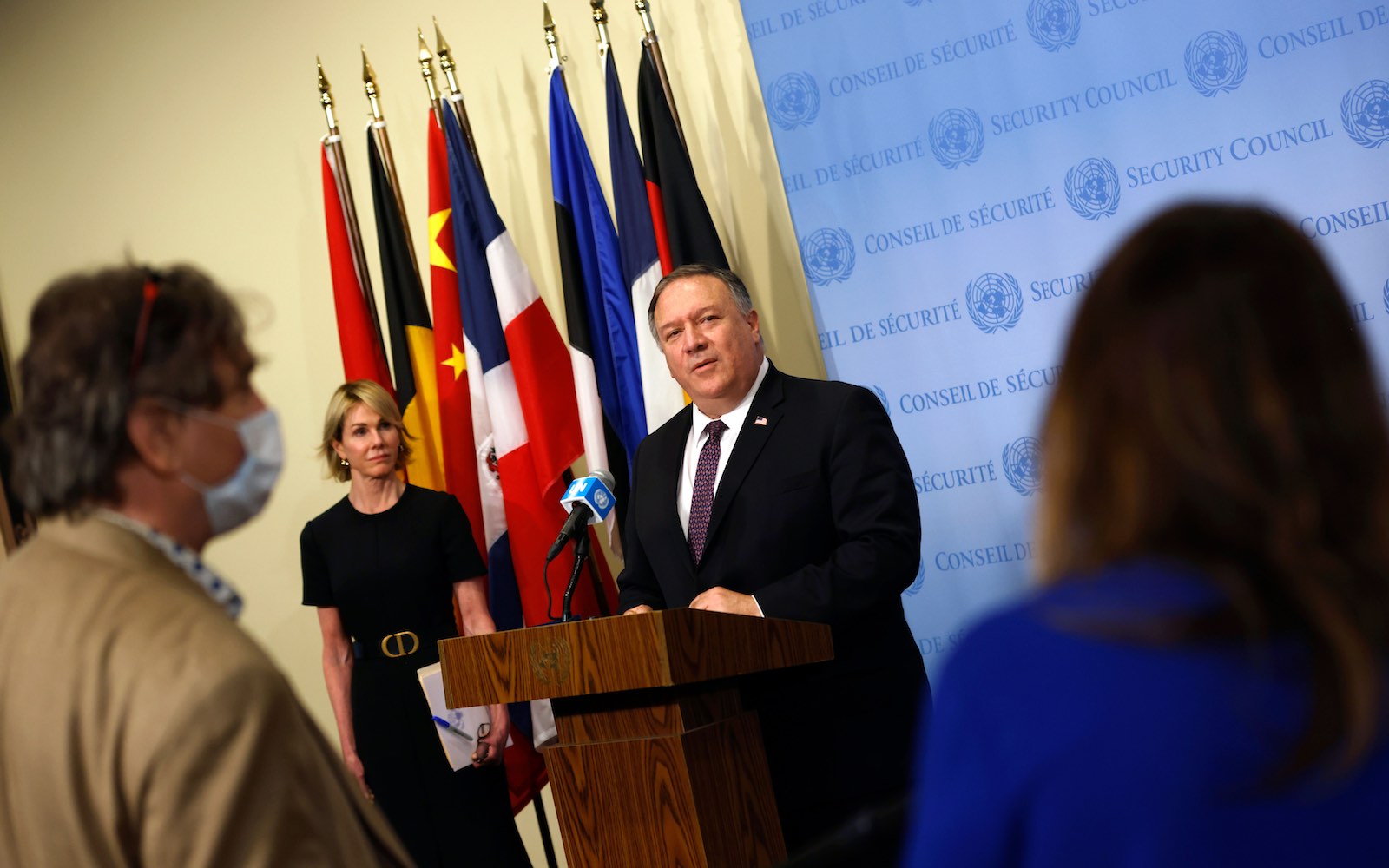After the United States experienced a rebuff at the United Nations last week – with almost the entire membership of the Security Council rejecting its attempt to re-impose UN sanctions on Iran – US officials warned that the dispute could lead to a major crisis in the Council, damaging the institution’s authority.
They are not alone in this analysis. Russian foreign minister Sergey Lavrov, a vocal critic of the US sanctions drive, has accused Washington of risking “a very serious scandal and rift” at the UN.
But these dire predictions may prove to be exaggerated.
The argument pivots on the US claim that, acting on the UN resolution that endorsed the 2015 Iranian nuclear deal (the Joint Comprehensive Plan of Action, or JCPOA), it can demand the reactivation of UN sanctions resolutions on Iran that were terminated as part of the bargain. The negotiators of the deal agreed on a complex process to “snap back” these resolutions if Tehran broke its commitments and other dispute resolution mechanisms failed. (A recent International Crisis Group report looks at this process in detail.)
When Secretary of State Mike Pompeo announced the US was triggering the snapback process on 20 August, most of other Council members responded dismissively, for the simple reason that the Trump administration quit the JCPOA unilaterally in 2018. While the US has made a legal case that it retains the standing to initiate snapback, even its European allies at the UN argue that it has forfeited its right to do so in practical terms. They suspect that the Trump administration’s real goal is to provoke Iran to renounce the JCPOA, and so kill the Obama-era deal.
Read the article by Richard Gowan in The Interpreter.

